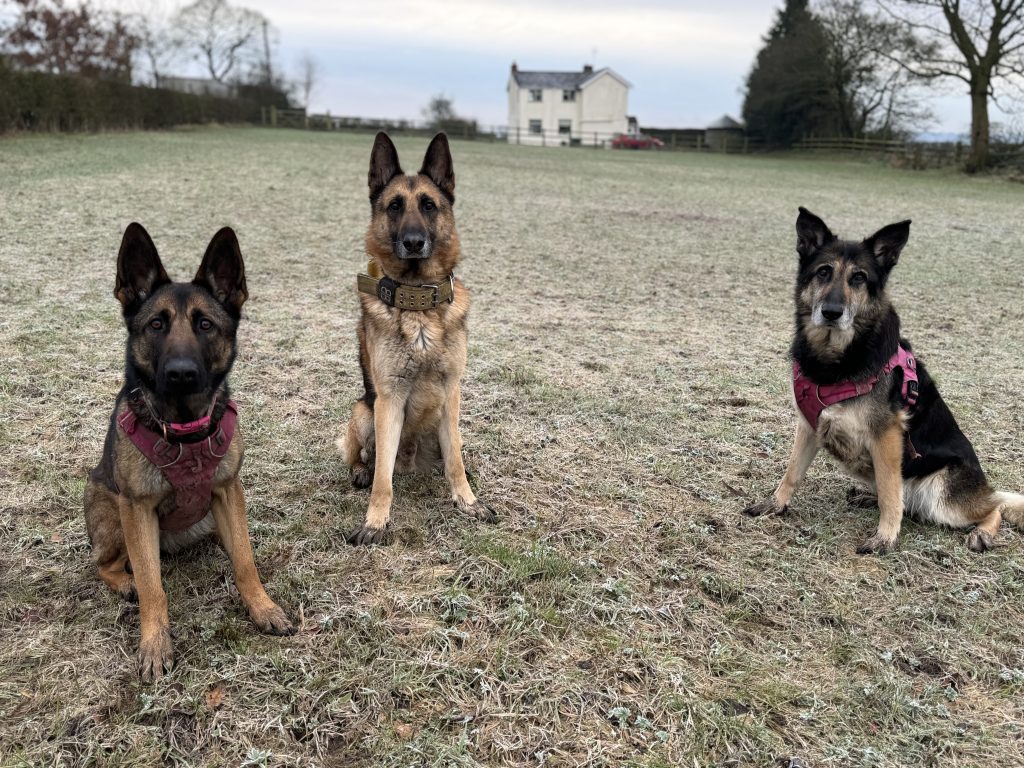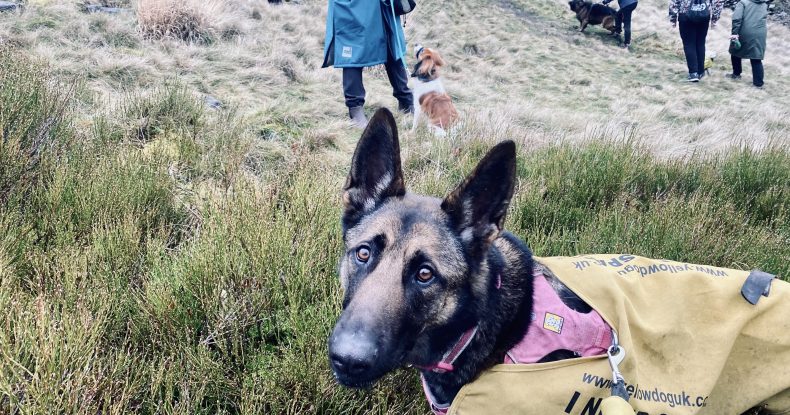Dogs bark; it’s their way of communication.
However, when barking becomes excessive, especially in reactive dogs, it can be distressing for both of you. Reactive barking, triggered by various distractions such as other dogs, strangers, or loud noises, can escalate quickly if not addressed. Fortunately, with patience, understanding, and consistent training, you can help your reactive dog learn to control their barking.
Meet Dot, a beautiful German Shepherd x Malinois, with a loving heart, but she struggled with heavy, excessive and completely out of control, reactivity.
Any sudden movement, loud noise, or unfamiliar person or animal would set her off into a frenzy of barking, lunging and redirecting on to the lead, or my arm!
Her previous owners, although determined to help Dot overcome her reactivity struggled to the point of having to re home her. Despite extensive effort and training, she wasn’t quite the well-behaved companion they knew she could be.
They contacted me from a place of desperation and excessive fear in the hope I might be able to help, and so along she came to mine, where I could see the potential beneath her reactive exterior.
It wasn’t that easy though, before seeing the potential, I was also met with being lunged at, she tried to bite me and was heavily guarding her food bowl, stolen house items and testing me to the point of despair and I knew that transforming this dog was going to take time, patience and dedication.
We began by developing a training plan tailored to Dot’s specific needs and working on building the relationship between us both, I couldn’t work with a dog who was petrified of me, and I couldn’t help her learn without her first trusting me.
The next step was to identify her triggers. Through careful observation, I identified that Dot was most reactive to people and other dogs, particularly when they approached her too quickly or invaded her personal space.
Armed with this knowledge, we began desensitisation and counterconditioning exercises. Starting off by keeping Dot at a safe distance from other people, where she could still see them but wasn’t too overwhelmed. Whenever Dot remained calm and focused on me, instead of reacting, she was rewarded with treats, toys and lots of praise.
Slowly but surely, Dot’s reactivity outside began to decrease.
With each successful training session, she grew more confident and relaxed in the presence of other people and we were making great progress inside the house, with her resource guarding and introductions to my dogs. For a dog like Dot, I also made sure to provide plenty of mental and physical stimulation for her, including days off, scent walks, puzzle toys, and obedience training sessions, which she loved and helped to build our bond even stronger.
As the weeks passed, I noticed we were able to walk in more places with less frantic barking and lunging behaviour. A remarkable transformation from where we had previously been.
Instead, she continued to remain calm and focused, looking to me for guidance.
With consistent training and lots of positive reinforcement, Dot became a well-behaved and obedient dog, quicker than I’d anticipated. She was able to accompany me on walks without incident, and the triggers even began to get closer and closer. The day she passed a gentleman on the same side of the road, was the day I knew we had made the progress we needed too and it was now time to turn my attention more to the dogs, as up to this point, I’d been actively avoiding them, choosing to focus solely on people.
We progressed to training and staying calm around dogs and whilst we’ve had a few of the ‘it’s ok their friendly’ brigade come and rock the boat, on the whole the consistency and creating a super safe space for her has paid off.

When training a reactive dog, consistency is crucial. You need to set clear, but fair boundaries and stick to them.
Avoid reinforcing reactive behaviour by not giving in to demands, setting a structure to follow and being consistent in your actions, helping the dog to understand what is expected of them in each situation.
If you’re struggling to manage your dog’s reactive barking on your own, don’t hesitate to seek help from a professional. They can assess your dog’s behaviour and tailor a training plan to address their specific needs.
Stopping a reactive dog from barking requires a lot of patience, understanding, and consistent training.
By identifying the root cause of the behaviour, using the right reinforcement based techniques, and providing mental and physical stimulation, you can help your dog learn to control their barking and respond calmly to triggers, instead.
Remember, every dog is unique, so be patient and persistent as you work towards a quieter, happier life with your furry friend
